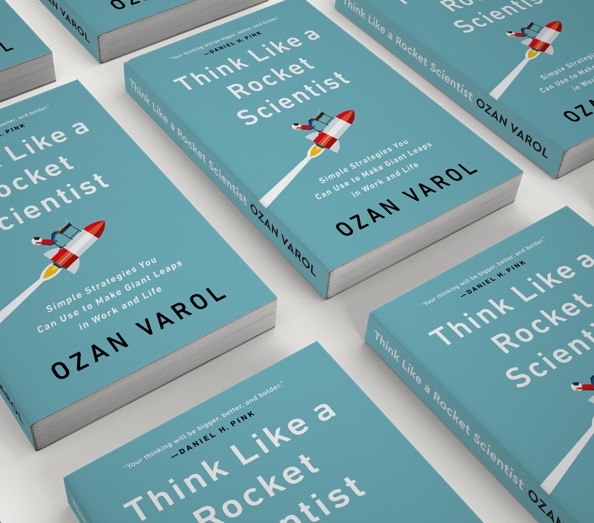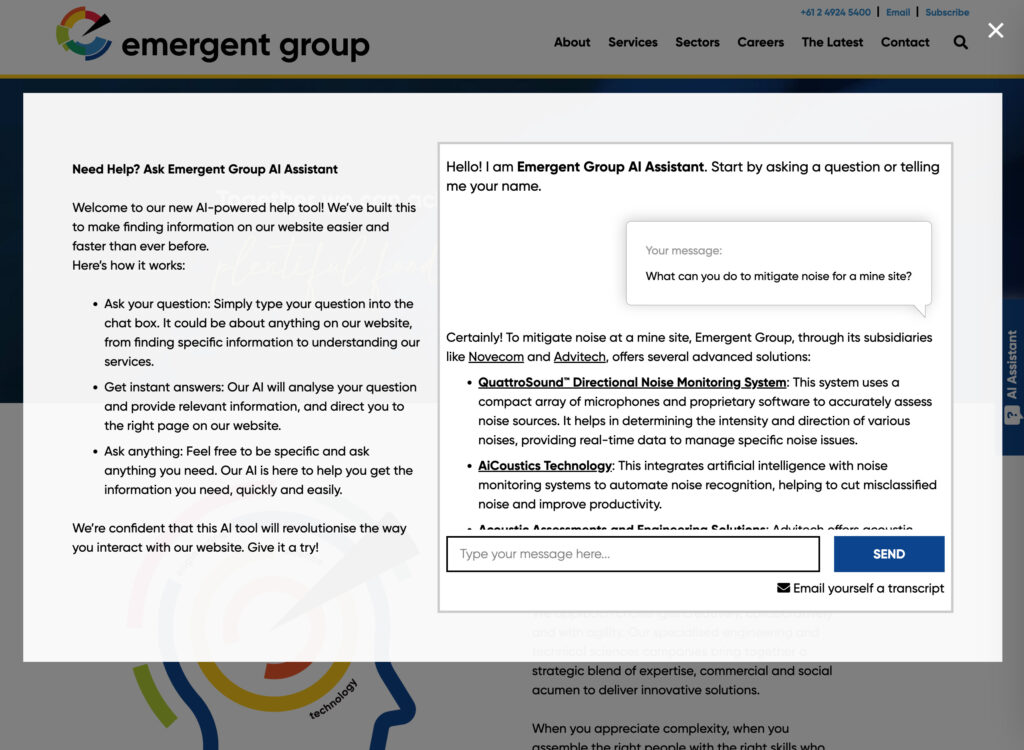It’s been a challenging year and one that has caused many to confront problems and to rethink or recalibrate their business strategies. The good news is that we are all capable of overcoming even the toughest of challenges. The secret is in our mindset and the approach we take. Often we look at problems that are seemingly straightforward and say that “it isn’t rocket science”. The obverse of this cliche is that we must deal with issues that seem as complicated as landing a robot on Mars and require an astrophysicist to overcome them.
Thankfully an actual rocket scientist, Ozan Varol, has written an insightful and engaging book about how problems are thought about and approached in the world of rocket science. It isn’t as complicated as you might think and you can apply rocket scientist thinking to any problem, challenge, and goal. Think Like a Rocket Scientist, by Ozan Varol, offers a set of 9 strategies, under three themes, appropriately named: launch, accelerate, and achieve. I like a well-structured book that is equally waited between illustrative anecdotes, interpretation, and practical tools that can be applied. This book is possibly a little heavier on the stories, but in this context, it is essential. The author brings a somewhat unique perspective and one that is backed by an even more impressive set of experiences and psychological development. It also helps that the stories are fascinating.
There is a companion workbook with summaries and exercises to further enhance the practicality of the book. It is one of the few that has compelled me to study more in-depth and subscribe to the author’s newsletters for further insights. I want to adopt my interpretation of the strategies in the book, so putting them in my terms, we have:
- Be curious when confronted
- Do pull it apart
- Be creative
- Do remove limits
- Be more inquisitive
- Be opposite
- Do test hard
- Do study failures
- Do study successes
Being curious means to change your approach to uncertainty with an open mind and interest. Through stories, the author gives us tools with which we can dive into uncertainty with wonder rather than trepidation.
To pull a problem apart means to reduce it to its first principles. To avoid doing what has been done before or pre-prescribed by others. It is easy to fall back onto the expedient rather than pulling apart the issue and looking at the parts from the perspective of a child who has only just learned what their core function is. This allows us to clear ourselves of our assumptions and see the fundamental nature of each element of the problem.
Being creative means to play, allow your mind to play. To give yourself the space to conduct though experiments and run scenarios in alternate universes. Allow creative thinking to occur by stepping away from impulses and the need to act continually like a dog with a bone.
Removing the limits means to practice “Moonshot Thinking”. Now previously I wouldn’t say I liked the term moonshot; however, this is the second book I have read that did something positive with it and used it in a less cliche context. Moonshot thinking is to take your first principles and run scenarios that are not impeded by the limitations placed upon the problem in our usual place. We need to practice divergent thinking and convergent thinking, generating different ideas and then questioning them with practicality.
Being more inquisitive means to look at the questions we are asking ourselves when tackling a problem and seeking to understand are they the right questions. By being inquisitive and exploring what the core problem we are trying to solve is, we will find new answers emerge that were previously hidden by myopic wonder. This particular illustration was the author’s own experience trying to land a robot on Mars. Indeed there is something that will be learned from that experience!
Being opposite is a means to avoid confirmation bias where our preconceptions and assumptions can often cloud important detail. The example in the book sums this up nicely when a Mars mission failed because the navigators assumed the supplied dimensions were in metric when they were in fact in imperial. Such a simple mistake but dramatic consequences. Being able to look at something from an opposite or alternate viewpoint allows us to remove biases and uncover the devil in the detail.
Test hard means to test vigorously and often. In rocket scientist terms, to test as you fly and fly as you test. There are no punches pulled here. Test your assumptions and your solutions to the limit. Test outside of your comfort zones and test like it is not yourself doing the testing. You can only find out how strong something is by breaking it, and you will learn a lot in the process.
To study failures is more profound than the common “fail fast” philosophy in our economy. Rocket scientists are not afraid of failures as they are opportunities to learn. They collect and study failures at a molecular level so they can learn from failures within successes as well as broader failures. Studying failures and success allows us to ensure that we learn from the full set of experiences.
Overall, it could be said that to think like a rocket scientist is to approach a problem without ego, without constraints, and inhibitions. Think Like a Rocket Scientist is the right book at the right time for anyone wanted to achieve success in their pursuit both in “normal” times or these turbulent times. The strategies are engaging, and fundamentals are easily drawn from them. The book is well presented, and the companion materials very practical.
Image from https://ozanvarol.com




